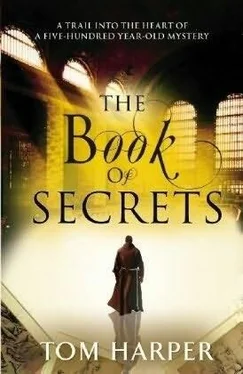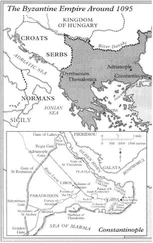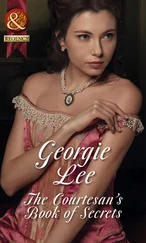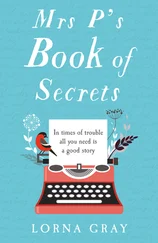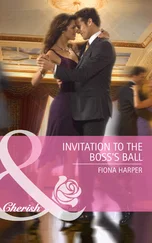He saw me peering over his shoulders at the apprentices in the workshop behind him. ‘Not now. Come back tomorrow if you still want to see him.’
‘Where is he today?’
‘At the crossroads of St Argobast.’ He glanced at the sun. ‘You’ll struggle to get there and back before dusk.’
‘How will I recognise him?’ I persisted. ‘Look for a man on a ladder.’
There are many days, perhaps most, when destiny eludes us, slipping from our grasp while we bump around like blind men. There are days, few and rare, when it runs to meet us like a mother gathering her children. And then there are days when it taunts and teases but holds out the promise of victory to the persistent. That day I would not be denied. I felt it in my soul, a trembling excitement that only grew as I wound my way back across the bridges and canals, past the mills and farms that lined the banks of the Ill. Canvas sails spun the sun into flashes of light. Yellow-downed ducklings teetered in the mud at the water’s edge.
I reached the crossroads an hour before sunset. The labourers had left the fields and the road was empty. Haze filled the air. A few birds chirruped in the hedgerows, but otherwise all was still. A little beyond, I could see a few timber-framed houses that made the hamlet of St Argobast.
A copse of three rowans, just coming to bud, stood where the roads met. A panel showing the Virgin had been raised on a high pole in front of them, a shrine for travellers. A man with a palette in one hand and a brush in the other stood on a ladder against it, apparently careless of the height. Though he had his back to me, I knew at once he was the man I had come to find. I only had to look at the Madonna he had painted. The crown had been smudged into a halo, and instead of a deer there was a docile child sitting on her skirts, but otherwise she was the queen from the cards. The same abundant hair, one raised hand carelessly stroking it; the same full lips and coquettish eyes admiring her reflection in the hand mirror – which in this incarnation had become the face of her child. With her full hips, her swelling breasts and her legs spread wide open under the folds of her gown, she was the most brazen Virgin I had ever seen.
I walked to the foot of the ladder. ‘Are you Drach?’
He looked down. The sun hung behind his head like a nimbus, hiding his face in its brightness.
‘Did you make the cards? The deck of birds and beasts and flowers and wild men that miraculously duplicate themselves?’ I held up the eight. The low sun shone through so that the paper glowed amber in my hand. The swirling outlines of the beasts traced themselves on the back of the card.
I heard the soft laughter that afterwards I came to know so well.
‘I did.’
Paris
The taxi drove past the tourists already gathering in front of Notre-Dame cathedral. It crossed the river on the Pont Neuf and turned into the block of tiny alleys that wound around the church of St Severin, near the Sorbonne. It stopped about halfway down the lane outside a hotel, an old building with an awning over the door advertising a brand of beer. A tabby cat jumped down from the receptionist’s chair as Nick and Emily walked in and stalked away. A moment later, an elderly man appeared from the adjoining office. He answered Emily’s question with a nod and a smirk, and produced a pair of keys from the drawer. He didn’t ask for any paperwork.
They took the elevator up to the room. Nick looked at the double bed and tried to hide what he was thinking.
‘I asked for a twin,’ Emily apologised. ‘I’ll go down and ask them to change it.’
‘I can sleep on the floor.’ Just at that moment he could have slept anywhere. But not yet.
He dropped his bag and went to the small table by the window. He pulled the stiff-backed envelope from his inside coat pocket. By unspoken agreement, they had waited until they got back to the hotel room.
Like a pair of clumsy lovers they both reached for the envelope at the same time. Their hands collided, withdrew. Nick took it. He forced his finger under the flap of the envelope and tore it open. Something firm and smooth to the touch waited inside. He slid it out onto the table. A flat oblong about the size of a postcard, wrapped in white tissue paper.
‘Let me.’
This time he let her have her turn. Emily slid a nail under the tape and peeled back the folds of paper. They both stared.
After everything he had endured, Nick’s overwhelming feeling was disappointment. The object of his quest was utterly familiar. Four bears and four lions, no longer on a screen but printed on stiff, fluted paper. Age made it grey, though the printed lines were still sharp.
Emily pulled on her gloves and picked it up by the edges. ‘There isn’t any stamp or insignia on it.’
‘Should there be?’
‘If it came from a library or a major collection.’ She flicked on the table lamp and held the card against the shade so that it glowed. ‘There are no outlines around the animals. This was printed from a single copper sheet – not one of the later cut-up composites. And there.’ She pointed to the middle of the card. ‘The watermark – a crown. That’s the same as the other early cards.’
‘What about those?’ Nick pointed to a cluster of dark blots smeared on the bottom-right corner of the card. Some were black, others a reddish brown. ‘They look like dried blood.’
‘Maybe wine spilled during a game?’ Emily laid the card back in its tissue paper and covered it reverentially, like a corpse. Her lips were moist with excitement. ‘This is genuine, Nick. The first of these cards to be discovered in a century.’
Nick didn’t respond. If anything, her excitement only fuelled his resentment. He felt a sudden urge to tear the card into pieces.
‘We’re supposed to be finding Gillian.’
‘Who wanted you to have the card.’
‘And what am I supposed to do now? Put it in a museum with a sign? “Gift of Gillian Lockhart, shame she disappeared.” ’ Nick knew his tiredness was running away with him but couldn’t make himself care enough to stop.
‘Did she leave anything else?’
Emily’s question stopped him like a slap in the face. Nick picked up the envelope and shook it. Something rattled inside.
He turned it over. A credit-card-sized piece of plastic and a small gold microchip tumbled out onto the table.
He examined the plastic card first. It was red with ‘BnF’ next to an image of an open book. He turned it over and stared. There was Gillian, printed into a one-inch box in the corner, staring down the camera like the barrel of a gun. It took him a moment to recognise her. An overhead light glared off her forehead and drowned her face in an unflattering, office-issue shadow. She’d cut her hair since he last saw her and dyed it blonde. He remembered a line from a poem she’d liked to quote at him: ‘Naught shall endure but mutability’.
‘BnF is the Bibliothèque Nationale de France,’ said Emily. ‘The French national library. Forty of the original playing cards are there. This must be her pass.’ She pointed to the gold microchip. ‘What about that?’
Nick picked it up between his finger and thumb. ‘It’s a SIM card. For a cellphone.’
‘Why would she leave that?’
‘Maybe so we could see who she called.’
Nick pulled out his own phone and prised off the back cover. He slid the SIM out of its holder and replaced it with Gillian’s. He was about to turn it on when suddenly he paused. His finger hovered over the power button. ‘Or…’
‘Or what?’
‘Or because they could trace the signal to locate her.’
He put the phone in his pocket, grabbed his coat and headed for the door. Emily jumped up in alarm.
Читать дальше
